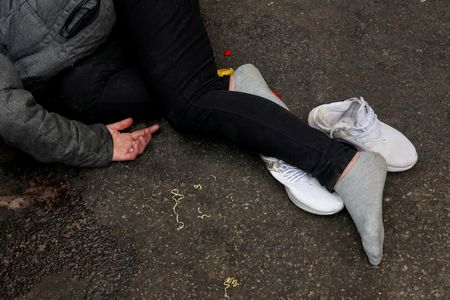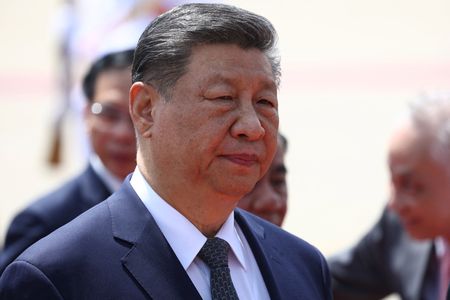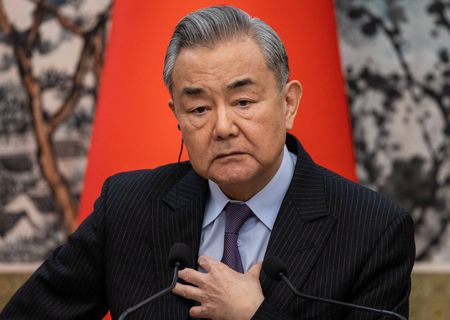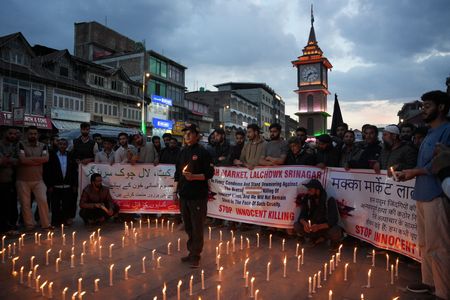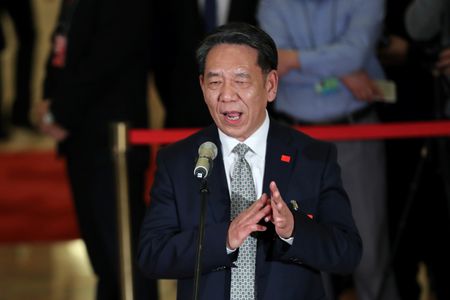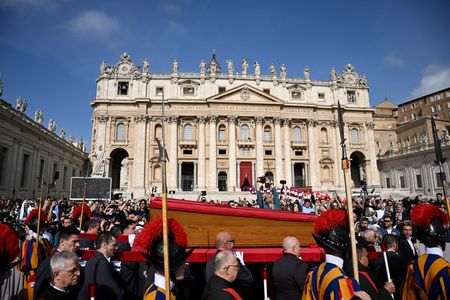By Joshua McElwee
VATICAN CITY (Reuters) – No one knows who the world’s Catholic cardinals will choose to succeed Pope Francis as the new leader of the global Catholic Church. But for those watching attentively, there are sometimes hints about who might emerge as the next pontiff.
The process to choose a new pope is long and secretive. Most of the world’s 252 cardinals are coming to Rome to take part. Those under the age of 80, about 135 prelates, are preparing to enter into a conclave to elect the next pontiff.
Once it starts, which by Church law should be no earlier than May 6, the cardinals will be completely shut off from the modern world until a new pope is named.
In the meantime, they can attend public events and give interviews about what they are looking for in the next leader of the world’s 1.4 billion Catholics.
“Reading the pre-conclave signs to identify papal candidates is tricky, because the signs are usually very subtle,” said John Thavis, a Vatican correspondent who covered three papacies.
Francis died on Monday aged 88. There is no clear frontrunner to succeed him.
As the pope was recovering from pneumonia over the Easter weekend, he asked retired cardinals over the age of 80 to preside in his place at the Vatican’s various celebrations of the holiday, possibly because he did not want to signal any favourite successor.
The pope’s funeral, on Saturday, April 26, will be the first big moment to watch for signs of who might be next.
Tens of thousands, including dozens of world leaders such as U.S. President Donald Trump and Ukrainian President Volodymyr Zelenskiy, are expected in St. Peter’s Square for the ceremony. Millions more will be watching across the globe.
The cardinals attending will listen closely to the sermon given by Italian Cardinal Giovanni Battista Re, the ceremonial leader of the College of Cardinals and a retired Vatican official.
At the funeral of Pope John Paul II in 2005, the sermon was delivered by German Cardinal Joseph Ratzinger, who offered what many thought was a stirring elocution on the late pope’s life and legacy.
Eleven days later, Ratzinger would be elected as Pope Benedict XVI.
Re is 91 years old, cannot enter the conclave and is not a papal contender. But insiders expect he might still try to offer a guide for his confreres to follow in the way he chooses to describe Francis’ papacy, or in any words he uses to describe the needs of the Catholic Church today.
HINTS EMERGING SLOWLY
The papal funeral marks the first of nine days of mourning for the global Church. Another Mass of mourning will be held in St. Peter’s Square on Sunday. That will be led by Italian Cardinal Pietro Parolin, often cited as a leading papal contender.
“The cliche … is he who enters the conclave a pope leaves a cardinal,” said Christopher Bellitto, an historian at Kean University in New Jersey who specializes on the Church. “Only prophets know what is going to happen.”
Other hints for possible successors to Francis will likely come out more slowly.
In 2013, as the cardinals gathered in Rome after Benedict’s surprise resignation, some of the U.S. prelates preparing to take part in the conclave started giving press conferences.
The wider group of the world’s cardinals later asked them to stop doing the briefings.
Even if there are no press conferences this time, cardinals spending time in Rome often celebrate Masses at churches across the city. The sermons they offer on those occasions could give indications of what they are thinking.
“Any signs will come in bits and pieces, or phrases used to describe what cardinals are looking for in the next pope,” said Thavis.
“Words like ‘openness’ and ‘reform’ may fit certain cardinals, while ‘administrative skills’ and ‘solid theology’ may describe others,” he said.
BEHIND CLOSED DOORS
The biggest hints will come in the daily meetings the cardinals have in the week leading up to the conclave.
In these meetings, known as “general congregations”, the cardinals have an opportunity to speak freely and even, perhaps, to offer a vision for a future papacy under their own leadership.
In 2013, Argentine Cardinal Jorge Mario Bergoglio offered a short reflection at one of those meetings.
He said the Church, beset by sexual abuse and financial scandals, had become “sick” and too “self-referential”, according to a text that was later published. He said the Church needed to do a better job of trying to open itself up to the modern world.
A few days later, Bergoglio would be elected as Pope Francis.
The final deliberations about who should follow Francis will take place in conclave. The cardinals who enter the Sistine Chapel to vote will be sealed off from the world, forbidden from reading newspapers or speaking with the outside world.
As they enter their deliberations, Archbishop Diego Ravelli, who leads the Vatican’s liturgical celebrations, will shout, in Latin, “Extra omnes!” (Everyone out!)
(Reporting by Joshua McElwee; Editing by Alex Richardson)


